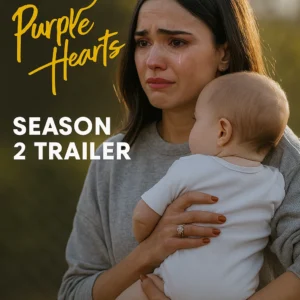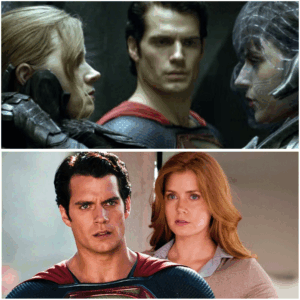In the ever-turbulent waters of Hollywood’s cultural battles, few stories carry the weight of nostalgia, betrayal, and redemption quite like the fractured bond between Emma Watson and J.K. Rowling. The woman who enchanted the world as the brilliant, bushy-haired Hermione Granger has, for the first time in years, laid bare the emotional toll of their public feud. In a candid September 24, 2025, episode of the “On Purpose with Jay Shetty” podcast, Watson, now 35, addressed the chasm that has grown between her and the author who catapulted her to stardom. Her words—raw, reflective, and resolute—have sent shockwaves through the Harry Potter fandom, igniting a firestorm of reactions from heartbreak to hope. “I treasure the relationship we had,” Watson confessed, her voice steady yet laced with sorrow. “But it’s painful, and I hope I can keep loving people who I don’t necessarily share the same opinion with.” As fans reel from this unexpected vulnerability, the interview serves as a poignant reminder of how personal convictions can shatter even the most magical legacies.
The genesis of this rift traces back to 2020, a year that tested alliances across the entertainment world. J.K. Rowling, the billionaire scribe behind the seven-book phenomenon that sold over 600 million copies worldwide, ignited controversy with a tweet mocking the phrase “people who menstruate” in a Guardian article. What followed was a cascade of posts, essays, and statements that positioned Rowling as a vocal critic of transgender rights. She argued for the preservation of sex-based rights for women, decrying what she saw as the erosion of single-sex spaces and the potential threats to female safety. Her June 2020 essay, clocking in at nearly 3,600 words, delved into her personal history of domestic abuse and sexual assault, framing her stance as a feminist imperative. “I’ve read all the arguments about femaleness not residing in the sexed body, and the assertions that biological women don’t have common experiences,” she wrote, “and I find them, too, deeply misogynistic and regressive.”
Rowling’s words struck like a Patronus charm gone awry in the wizarding community she created. Fans, activists, and former collaborators recoiled, accusing her of transphobia and bigotry. The backlash was swift and seismic: petitions demanding Warner Bros. distance itself from her, boycotts of her books and related merchandise, and a torrent of social media condemnations. Among the most prominent voices was Emma Watson’s. The actress, a UN Women Goodwill Ambassador since 2014 and a fierce advocate for gender equality through her HeForShe campaign, responded with a tweet that echoed like a spell: “Trans people are who they say they are and deserve to live their lives without being constantly questioned or told they aren’t who they say they are.” It was a concise, compassionate rebuke that amassed millions of likes and retweets, solidifying Watson’s position as an ally to the LGBTQ+ community.
But the divide deepened. Rowling, undeterred, escalated her rhetoric. In 2022, she founded Beira’s Place, a sexual assault crisis center in Edinburgh that excluded trans women, citing concerns over privacy and safety. She mocked “gender identity” as a concept in her 2023 book “The Women Who Wouldn’t Wheesht,” a collection of essays railing against Scottish gender recognition reforms. By 2024, the feud turned personal. When a fan on X (formerly Twitter) asked which actor “instantly ruins a movie” for her, Rowling quipped, “Three guesses,” followed by laughing emojis—a thinly veiled jab at Watson, Daniel Radcliffe (Harry Potter himself), and Rupert Grint (Ron Weasley). All three had publicly supported trans rights, with Radcliffe penning an open letter for The Trevor Project and Grint telling Esquire, “I support [trans people] fully.” Rowling later clarified in a March 2025 X post that she would “never forgive” them for “cosying up to a movement intent on eroding women’s hard-won rights.” She even implied their activism had “ruined” the films for her, a dagger to the hearts of the trio who grew up on her pages.
Watson’s podcast appearance marks her most direct engagement with the saga since her initial tweet. Seated in a sunlit London studio, opposite host Jay Shetty—a former monk turned life coach known for his empathetic deep dives—the actress unpacked the emotional wreckage. Shetty, ever the gentle prober, referenced Rowling’s unforgiving stance and asked how Watson reconciled gratitude with grief. “It’s really painful,” Watson admitted, her brown eyes misting slightly under the soft lighting. “I treasure the relationship we had because she showed me kindness and words of encouragement and steadfastness that I will always remember.” She recalled Rowling’s early support during the filming of “Harry Potter and the Sorcerer’s Stone” in 2001, when a wide-eyed 11-year-old Watson arrived on set, nervous and unknown. Rowling, then 35 and riding the wave of her debut novel’s success, took the young star under her wing, offering pep talks and affirming her potential. “She gave me a character like Hermione, who barely exists in the history of English literature—a girl who is unapologetically herself, brilliant and flawed. There’s no world in which I could ever cancel her out, or cancel that out.”
Yet, Watson’s affection is tempered by a firm boundary. She expressed dismay not just at the views, but at the absence of dialogue. “The thing I’m most upset about is that a conversation was never made possible,” she said, her voice cracking with the weight of unspoken words. Watson envisioned a world where disagreement doesn’t demand disownment: “I hope people who don’t agree with my opinion will love me, and I hope I can keep loving people who I don’t necessarily share the same opinion with. No one is disposable.” It’s a philosophy rooted in her post-Hogwarts evolution—from child star to Oxford-educated activist, earning a degree in English literature in 2014 while championing causes from climate change to women’s rights. In 2025 alone, she’s lent her voice to the UN’s Spotlight Initiative against gender-based violence and narrated a documentary on Gaza’s humanitarian crisis, positions that underscore her commitment to inclusivity.
The interview’s timing is no coincidence. It drops amid HBO’s greenlight for a “Harry Potter” TV reboot, set for 2026, with Rowling as an executive producer. The series promises a faithful adaptation with a fresh cast of young unknowns, a move that’s thrilled some purists but alienated others who see it as Rowling’s bid to reclaim narrative control. Watson, who stepped back from acting after 2019’s “Little Women,” has been vocal about her hiatus, telling Vogue in 2023 that motherhood (to a son born in 2022) and behind-the-camera pursuits like directing short films fulfill her creatively. Rumors swirl of a potential return in a Greta Gerwig-helmed “Chronicles of Narnia” adaptation, but for now, she’s content in semi-retirement, splitting time between London and a quiet Cotswolds home. The Rowling rift, however, lingers like a Horcrux, fragmenting the fandom she once united.
Fan reactions have been a cauldron of emotions, bubbling over on platforms from X to TikTok. The podcast clip, shared by Shetty’s account, garnered 2.5 million views in 24 hours, with comments sections erupting in a spectrum of support and sorrow. “Emma, you’re breaking my heart—JK was our childhood hero, but this hurts,” one user lamented, attaching a throwback photo of the author and cast at the 2001 premiere. Another, a trans fan, praised Watson’s grace: “This is allyship done right—not cancellation, but compassion. Crying because she gets it.” Shock dominated the discourse; many Potterheads, now in their 30s and 40s, confessed to “unfollowing” Rowling years ago but still harboring hope for reconciliation. A viral thread on Reddit’s r/harrypotter subreddit, titled “Emma’s Interview Just Made Me Ugly Cry—What Now?”, amassed 15,000 upvotes, with users debating everything from boycott calls to fanfic reconciliations. One poignant post read: “We grew up with magic that taught love over hate. Emma’s living it; JK’s lost in the chamber of secrets.”
The broader implications ripple beyond Hogwarts. Rowling’s stance has polarized the literary world, costing her endorsements like her 2020 removal from Scotland’s mental health campaign and backlash against her Cormoran Strike detective series. Yet, she’s doubled down, amassing 14 million X followers who amplify her as a free-speech martyr. Supporters, including figures like Maya Forstater (whose employment tribunal victory Rowling funded), hail her as a defender of women’s spaces. Critics, from GLAAD to Amnesty International, decry her rhetoric as harmful misinformation that fuels anti-trans legislation in the U.S. and U.K. Watson’s interview injects nuance into the noise, modeling a path of “holding incompatible things together,” as she put it. It’s a stance echoed by Radcliffe, who in a 2024 Atlantic profile called the schism “really sad” but affirmed his unyielding support for trans rights, and Grint, who in 2022 quipped he’d choose “trans rights” over family reunions if forced.
For Watson, the conversation feels like a quiet rebellion against binary thinking. In the podcast’s hour-long arc, she weaves the Rowling rift into a tapestry of personal growth—discussing imposter syndrome from her child-star days, the joys of anonymous motherhood, and her evolving views on feminism. “I used to think feminism was about sameness,” she reflected. “Now I see it’s about celebrating difference, even when it hurts.” Shetty, drawing from his monastic roots, pressed on forgiveness: Could Watson envision a sit-down with Rowling? “I’d be open to it,” she replied, “if it came from a place of mutual respect.” It’s a olive branch extended across the Great Hall, fragile yet fervent.
As the dust settles on this latest chapter, the wizarding world—and its real-world echoes—stands at a crossroads. Fans, once united by broomsticks and Butterbeer, grapple with the adulting of their icons: the magic-maker turned lightning rod, the girl-on-fire turned global conscience. Watson’s words offer a spell of sorts—not Expelliarmus, but Expecto Patronum—a reminder that love, in all its complicated forms, is the true Patronus against despair. In a year marked by reboots and reckonings, her interview isn’t just shock therapy; it’s a beacon for bridging divides. Will Rowling respond? History suggests not, but in the words of her own creation, “It does not do to dwell on dreams and forget to live.” For now, the fandom holds its breath, wands at the ready, hoping for a plot twist toward healing.


